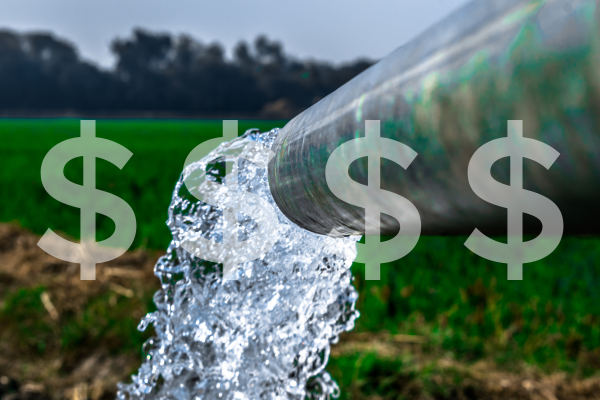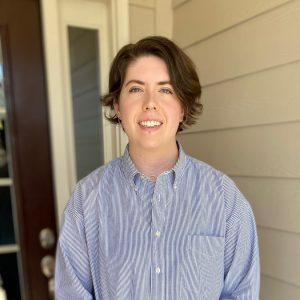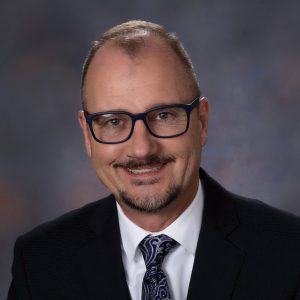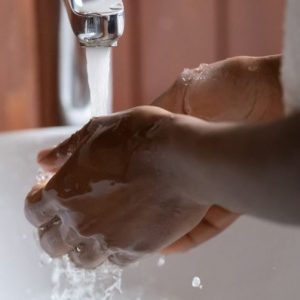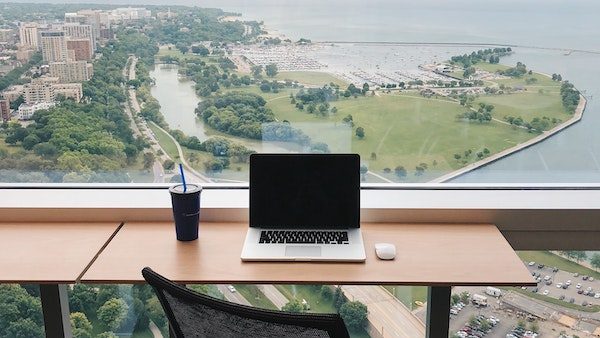River Voices: May 2023

Welcome to the May 2023 edition of River Voices. This month we’re sharing the many different ways we’re supporting network members in meeting this historic moment for federal funding for water. Plus, an update on the Low-Income Household Water Assistance Program.
River Network has a long history of supporting local organizations in accessing the funding they need for their communities. There are currently billions of dollars in federal funds being directed toward drinking water and wastewater improvements and advancing climate resilience, conservation, and equity. To respond, River Network is building resources, online courses, and gathering leaders to share knowledge across each of our focus areas: safe, affordable drinking water, climate-resilient communities, and healthy, resilient rivers.
Read our latest blog post, cowritten by multiple staff members, on how we’re equipping the network for the long-game.
“This moment of significant federal funding is imperative for the network to capitalize on, building foundations for the future of abundant clean water for decades to come, no matter what changes may arise at the federal level. River Network is honored to support the network of water, justice, and river advocates at this time, helping them navigate this complicated landscape and center equitable and enduring solutions that start with community – created with, by, and for the people most impacted. “
–River Network Staff
“As a kid I was obsessed with all things water. I wanted to be a water bender, or a mermaid, or an Olympic swimmer. While none of those dreams came true, I’ve stayed in close connection with the water my whole life.”
Shelby joined River Network in 2023 as the Drinking Water Program Associate, supporting the team on topics related to affordable drinking water and water infrastructure.
Read their first blog post at the links to the right!
“We have five community-based organizations within our community hub now, each providing a different service to vulnerable neighbors. Many of the funds we’ve won recently include participatory processes aimed at dialogue, planning, and advocacy where the community is leading.”
This month’s Meet Your Network features David Southgate, a Community-Based Adaptation and Development Practitioner and Researcher, who supported Puerto Rico-based group, Un Nuevo Amanecer, in accessing federal funding from multiple agencies.
“[Long]-term, the various levels of federal, state, and local governments need to create true water affordability solutions, such as more affordable rate structures. In the short-term, the immediate need for water assistance for households struggling to pay their water bills remains.”
Shelby Cline, River Network’s new Drinking Water Program Associate, provides an update for the network on all things Low-Income Housing Water Assistance Program (LIHWAP) – from the LIHWAP annual Report highlights, to state-level news, and opportunities for advocacy.

Weds. 5/17, 9a PT/12p ET
The technology landscape is constantly changing, bringing efficiency and resiliency to those that adapt.
Join Felipe Reyes, Director of Customer Development at TechSoup, to learn about and complete the TechSoup Digital Assessment Tool (DAT), a free web-based application that helps nonprofit organizations assess their technology needs and understand their digital capabilities.
Register for “Discover Your Nonprofit’s Path to Digital Transformation.
To maintain a healthy, functioning river requires managing the entire river corridor—the channel, floodplain, riparian areas and wetlands, and the connected aquifer—as a single interdependent system. Advances in river science have helped identify the physical extent of a river corridor required for maintaining river processes and ecosystem services. For example, hi-res satellite imagery is used to identify a fluvial hazard zone (i.e., the natural geomorphological floodplain) where natural processes occur. This extent of the natural floodplain is generally larger than the FEMA regulatory floodplain, requiring communities to broaden how they plan for and manage land within the river corridor. Further information on the fluvial hazard zone is available above and from the Colorado Water Conservation Board FHZ Program website.
TODAY, 11a PT/2p ET: Innovative Floodplain and Watershed Management in Colorado
Join the Natural Floodplain Functions Alliance for this exciting webinar! Speakers include River Network’s own Brian Murphy; Jeff Sickles, Enginuity; Fay Hartman, American Rivers; and Jackie Corday, Corday Natural Resources Consulting.
Register for Innovative Floodplain and Watershed Management in Colorado.
Catherine Coleman Flowers Named to TIME 100 Most Influential People of 2023 List
The entire River Network team sends deep, heartfelt congratulations to Catherine Coleman Flowers, who has been named one of TIME Magazine’s 100 Most Influential People of 2023! Catherine, a past River Rally speaker and River Hero, has inspired the network for years – congratulations on this honor!
US Water Prize Nominations Are Open!
Awarded on an annual basis, the US Water Prize from US Water Alliance celebrates outstanding achievement in the advancement of sustainable, integrated, and inclusive solutions to our nation’s water challenges. The awards are dedicated to celebrating organizations leading the way with creative One Water solutions and driving a paradigm shift in how we view, value, and manage water in the United States.
May is Asian American, Native Hawaiian, and Pacific Islander (AANHPI) Heritage Month! Here are some books and social posts and accounts to check out this month.
- 📲 browngirlgreen‘s #aapiheritagemonth post.
- 💻 4 Incredible Asian American Women Who Are Fighting for Environmental Justice
- 💻 8 AAPI Climate Voices to Follow
- 📖 Be Not Afraid of Love – Mimi Zhu’s collection of powerful interconnected essays and affirmations follow their journey toward embodying and re-learning love after a violent romantic relationship, a stunning and provocative book that will guide and inspire readers to lean into love with softness.
- 📖 What My Bones Know – Stephanie Foo’s memoir is a brave narrative that reckons with the hold of the past over the present, the mind over the body—and examines one woman’s ability to reclaim agency from her trauma.
May is also Mental Health Awareness Month! Here are some books and podcasts our team turns to in support of our mental health.
- 🎧 The Happiness Lab podcast series – this series takes you through the latest scientific research and share some surprising and inspiring stories that will change the way you think about happiness.
- 🎧 For the Wild, Episode 330, Jenny Odell – a staff favorite podcast, featuring the author of How to Do Nothing, also recommended below!
- 📖 How to Do Nothing – Jenny Odell’s book details dropping out of the “attention economy” and shows us how we can still win back our lives.
- 📖 Pleasure Activism – adrienne maree brown’s powerful work details a politics of healing and happiness that explodes the dour myth that changing the world is just another form of work.
- 📖 Wild Comfort – Kathleen Dean Moore’s book relates what she learned following the deaths of multiple loved ones, as she turned to the comfort of the wild to learn what the environment could teach her in her time of pain.


